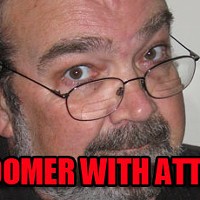Why we still need Black History Month
Three or four years ago, I wrote a column about a couple of young white guys I had overheard in a bookstore as they griped about Black History Month.
One of the guys summed up their complaints this way: "I mean, slavery was banned, people! What else have they had to gripe about?" Other guy: "No shit -- give me a White History Month."
Their brief, breathtakingly smug conversation seems even more outrageous today as we live through not only a great moment in black history, but also an extraordinary time in America's long, collective story. Just because we're at a groundbreaking moment, though, doesn't mean there aren't still plenty of folks who think like my dynamic bookstore duo.
As I wrote earlier, I can almost understand where they're coming from, especially considering that those 20-something guys and their friends were raised in the 1980s and '90s, in a culture that thrives on historical amnesia. I'm sure they have no idea why Black History Month was begun, or how black Americans' millions of stories were once completely ignored by mainstream culture. And how every month was White History Month. Most disturbing to this history buff, however, is how many Americans who are 30-something or younger know so little about Southern life before the civil rights movement -- which is pitiful, bearing in mind that from a historical viewpoint, those days were just a blink of an eye ago. So, once again, let this Southern-bred baby boomer, or as a friend calls us, "pre-geezers," tell you what it was like.
My hometown of Gaffney, S.C., where I grew up in the 1950s and '60s, was like thousands of other Southern burgs at the time. I remember all the things associated with the region during that era: homemade ice cream on a summer afternoon, wisteria's perfume wafting into the living room, the dammed-up creek near our house that was just right for swimming. But I also remember an old black man who once confused me when he stepped off the sidewalk and into the street, just to get out of my way. I was 7 years old.
And I remember the Ku Klux Klan. They had a mysterious but palpable presence in our town, and now and then you'd hear family members or neighbors speak of them. The grown-ups were careful not to let the kids hear exactly what the Klan had done, nor to whom. But sometimes we heard. "Found him down at the river ...," "beat him half to death," "... left him layin' there in the ditch."
The Klan's targets were often treated by one of the town's white doctors, most of whom provided separate entrances and examination rooms for black patients. One of the white physicians, Dr. James Sanders, was a favorite of Gaffney's black community and, because of that, many whites refused to give him their business. Some of them actually hated him for it.
In 1957, the year of widely publicized, violence-plagued school integration in Little Rock, Ark., a group of S.C. pastors decided to publish a small book of essays titled South Carolinians Speak: A Moderate Approach To Race Relations. One of the essays was by Dr. Sanders' wife, Claudia, a member of a venerable Charleston family and chairwoman of our county library board. Not long after the pastors' book was published, a Klan bomb blew up one side of the Sanders' house, located on the town's nicest residential street. Luckily, no one was home at the time.
For days after the bombing, curious people in our sleepy town drove by the house, gazing through the pines to survey the damage. My family was no exception. What I remember most was a toilet sitting in the Sanders' front yard next to some singed bushes. Although three Klansmen were soon arrested, and the proof was indisputable, charges were dismissed by a judge who hinted broadly that Mrs. Sanders had brought her troubles on herself.
Cut to decades later, 1998. In a used bookstore in the N.C. mountains, I ran across South Carolinians Speak, the first and only copy of the pastors' book I've ever seen, and my childhood memory of the bombing was rekindled. I had never read Claudia Sanders' essay, so I eagerly flipped through the pages, searching for it, assuming I'd find a hotheaded, pro-civil rights tirade. After all, she must have been pretty inflammatory to rile some people enough to make them want to kill her, right?
Then I read the "inflammatory" essay, and the depressing realities of life in the "good old days" came rushing back. Mrs. Sanders made a heartfelt, but mild, case for a gradual integration of schools, argued from a Christian viewpoint, that "all men are my brothers." She chastised Southerners for ignoring the "scandalously inadequate" schools for black children, but also suggested that each community find its own way to integration, without federal interference.
So, for those two bookstore 20-somethings, and for anyone who somehow doesn't already know it, that is what the pre-civil rights movement South was like: so repressive that even a respected, prosperous, Christian white woman risked having her life taken for merely saying in public that perhaps racial segregation should be gradually phased out.
Feel free to cut out this story and keep it for White History Month.
Latest in Boomer with Attitude
Calendar
-

Haw River Wine Tasting @ Carolina Beer Temple.
- Wed., April 24, 5-7 p.m.
-

Haw River Wine Tasting @ Carolina Beer Temple.
-

Mayo Clinic 8th Annual SKIN: Practical Dermatology for the Generalist @ The Ballantyne, a Luxury Collection Hotel, Charlotte
-

TRIVIA THURSDAYS!!! @ Elizabeth Parlour Room
-
NHRA Four-Wide Nationals - Friday @ Charlotte Motor Speedway
-
A Beginners Guide To Fishing 1
-
Sexercise with yoga ball dildos 1
The sexercise machine you would watch an hour-long infomercial on.
-
Hurricane Irene and climate change got you down? You're not alone.
Did climate change cause Hurricane Irene? Who cares? It's still a downer.











